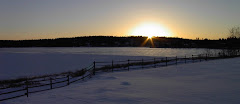
My son in grade 10 came home today and said his homework was to draw map of Canada in 1820. I asked if he would include the First Nations of BC as they were still independent. He told me that in class they learned that BC was jointly ruled by Britain and the US, this set me off.
Legally before 1848 there was no infringement of First Nation sovereignty in BC. Communities were not subject to any rule of law from either the US or Britain. The Hudson's Bay Company in the interior of BC had to seek permission from communities like Xaxli'p to take part in the annual trading fairs. Communities like Ts'kw'aylaxw made it entirely clear that the English did not apply to them or anyone under their protection.
Canada has this ongoing problem of how to deal with the narative that is BC history. It is 2010 and the schools continue with the fictions written in the past about this being terrus nullius. The courts of Canada specifically ruled this was not the case decades ago.
The Nuu-Chah-Nulth in the early 19th century had the military power to deny access to the west coast of Vancouver Island, there is a long list of ships they captured or sunk. They made slaves of some of the crews.
At the same time, starting at the end of the 18th century, some aboriginal people from BC were joining whaling crews and seeing the world. It was not just the Kanakas that sailed the world.
In the 1860s the Tshilcotin were militarily powerful enough that the British could not defeat them. The British only managed to win the Chilcotin war was to trick the leaders into coming to a parley and then taking them prisoner. They then executed them outside of any form of due process of law, sure the British had a judge there but they did not treat the leaders as prisoners of war as they clearly were.
The narrative of Canadian history has been one of a smooth timeline from the European discovery of the east coast up to the settlement of the prairies and the building of the railway. BC does not fit into this.
At a minimum, here in BC we should focus on the history of the region we live in, this means not only the history of BC, but of the related areas in the US such as Washington and Oregon. We need to make a stand and claim our history and know it. Without doing this we will never be truly at home where we are living.
The program that created the green signs like at the top of this blog needs to be expanded, we need to actively learn our history and then ultimately make sure all people in Canada know the history of BC. There really is no province in the country that people are less aware of in historical terms than BC.
Here ends the rant for the day....

No comments:
Post a Comment